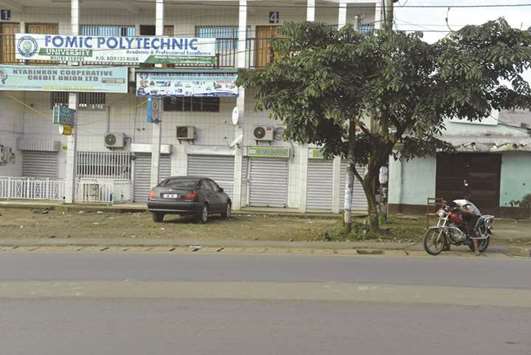The main city in a restive English-speaking region of Cameroon was a virtual ghost town yesterday, with armed police patrolled the streets on the eve of an expected – but symbolic – declaration of independence from the French-speaking country by anglophone separatists.
In Buea, the chief city in Cameroon’s Southwest Region, shops were closed, streets were almost deserted and the normally bustling university campus was lifeless after residents left, apparently fearing violence.
On Thursday, the authorities announced a temporary curb on travel and public meetings across the Southwest Region, adding to a curfew in the neighbouring Northwest Region, also English-speaking.
The majority of Cameroon’s 22mn people are French-speaking, while about a fifth is English-speaking.
The legacy dates back to 1961, when a formerly British entity, Southern Cameroons, united with Cameroon after its independence from France in 1960.
The anglophone minority has long complained about disparities in sharing out Cameroon’s oil wealth.
They are also angry about perceived discrimination, especially in education and the judicial system, where they say the French language and traditions are being imposed on them, even though English is one of the country’s two official language.
Tensions have surged, leading to marches and a clampdown ahead of what is expected to be a symbolic declaration of independence on October 1 – the anniversary
of the 1961 amalgamation.
University dormitories in the district of Molyko were empty and armed police patrolled the avenues.
“I am renting a room in a dormitory where there are 130 rooms, but right now I’m the only person here,” said Benoit, a French-speaking baker.
“There’s nobody here, there’s not a single student,” he said. “They are the lifeblood of Buea. When there are no students here, the city is dead.”
The clampdown in Southwest Region runs from Friday morning to Monday morning.

A man rides his motorcycle in an empty street by closed shops in Buea, the capital of the anglophone southern region of Cameroon yesterday. Anticipating unrest, officials in the south west have imposed a three-day closure of land and sea borders, suspended transport and banned gatherings ahead of what is expected to be a symbolic declaration of independence today by Cameroon’s English speakers who make up a fifth of the population.
